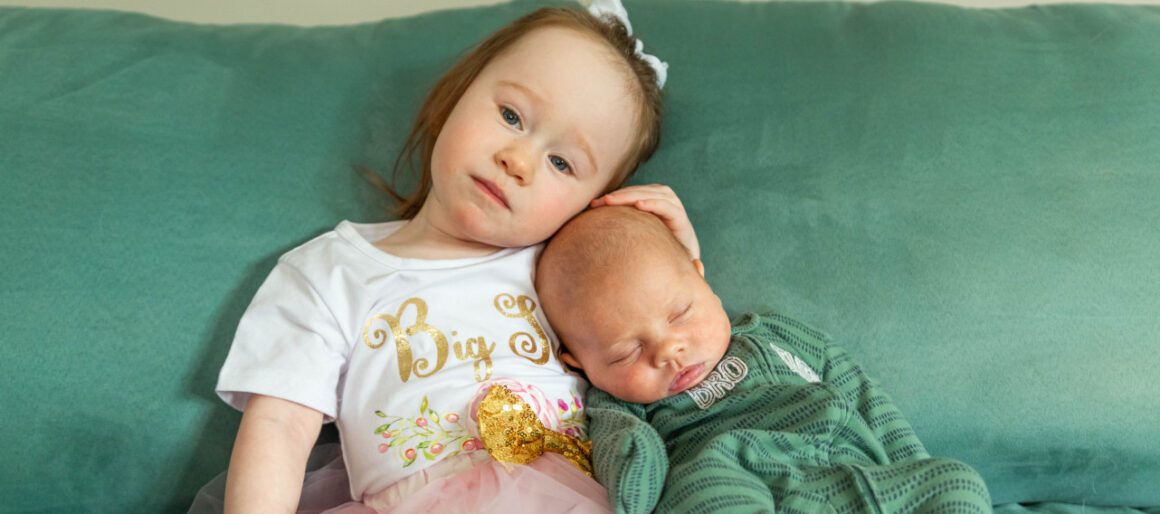Going from one child to two is a big change! And it’s not just parents who need to get ready — your firstborn does too.
As a social worker and a mom, I wanted to help my daughter adjust to being a big sister. Here are some tips that worked for our family:
BEFORE THE BABY ARRIVES
- Involve your child early
The sooner you involve your child in preparing for a new sibling, the better! This will give her more time to adjust. Allow her to ask questions. Depending upon her age, let her pick out items for the nursery or go to doctor’s appointments. - Use simple and repetitive language
Call your child a big sister or brother. Point to the baby in your belly. Let him talk to the baby if he wants to. - Let them feel their emotions
The anticipation of a new sibling can bring about a lot of different feelings! Allow her to feel all of them, even if it’s not excitement. You can continue to show your delight even though she may not feel that just yet. She may be feeling fear, anger or frustration. - Spend one-on-one time together
Aim for each parent to spend quality one-on-one time with the older sibling each day. And try to continue this even after the baby arrives. Just 10-15 minutes each day can help her feel reassured. This should be fun and special time to connect — not a time to teach ABCs. - Use books and dolls
Books can be a great tool to help him understand what to expect, how to share, and potential emotions he’ll feel. One example is “I Am a Big Sister” or “I Am a Big Brother” by Caroline Jayne Church. Having a baby doll can help him practice things like feeding and changing diapers. - Make a countdown
Counting down the days helped my daughter understand when the baby would arrive. It also helped build excitement. As we got closer, we took her for a fun family outing. There we explained that she would visit with her grandma and grandpa while we’re in the hospital with the baby.
AFTER BABY ARRIVES
- Expect regressive behaviors
Regressive behaviors are likely after a major life change! In other words, your child may go back to a behavior he’s already outgrown. This could include having potty accidents or wanting a pacifier after previously giving it up. I recommend not being reactionary or calling attention to it. Instead, encourage good behaviors with labeled praise and incorporate more quality time together. - Keep routines the same
A new sibling is a big enough change! Try to avoid any other major transitions for 8-12 weeks after the baby is born. For example, if your older child is still in a crib, wait before switching to a big kid’s bed. - Manage expectations aloud
You can help set the tone and manage expectations for both siblings by verbalizing them aloud — even when the baby can’t understand those words yet. For instance, if the baby is crying while I’m making lunch for my daughter, I do not drop everything immediately. I will say, “One minute, I need to finish lunch and then I will pick you up.” It helps my older daughter understand that I will still meet her needs, too. And sometimes I put her first. - Let them help (if they want)
If your child wants to help with the baby, let him! It can encourage bonding. That said, avoid forcing it or showing negative feelings if he is not interested. Giving specific praise for when he’s helping and showing kindness toward the baby will help to encourage more of that desirable behavior.
